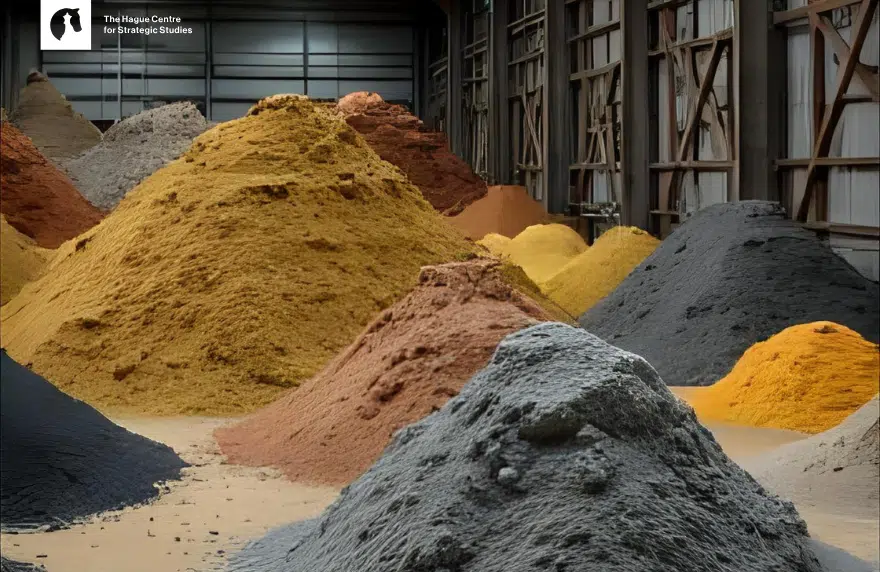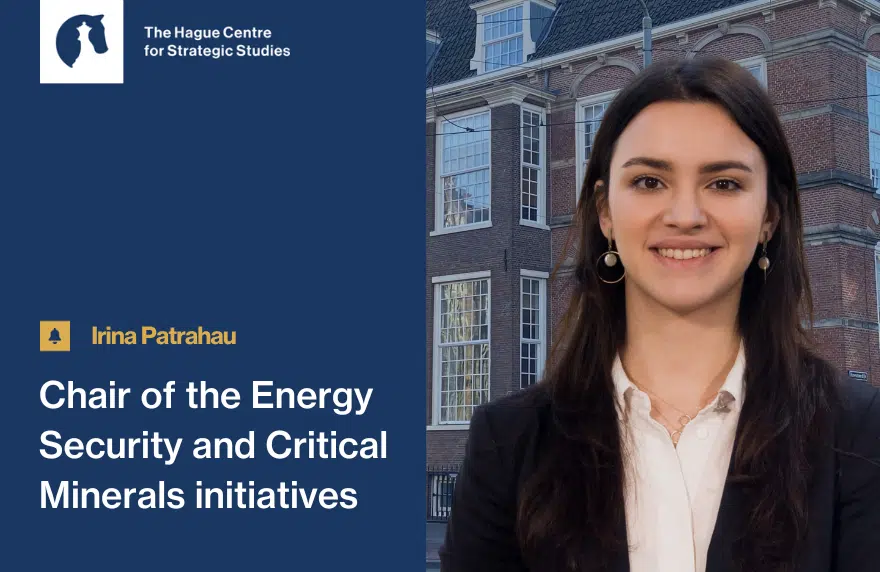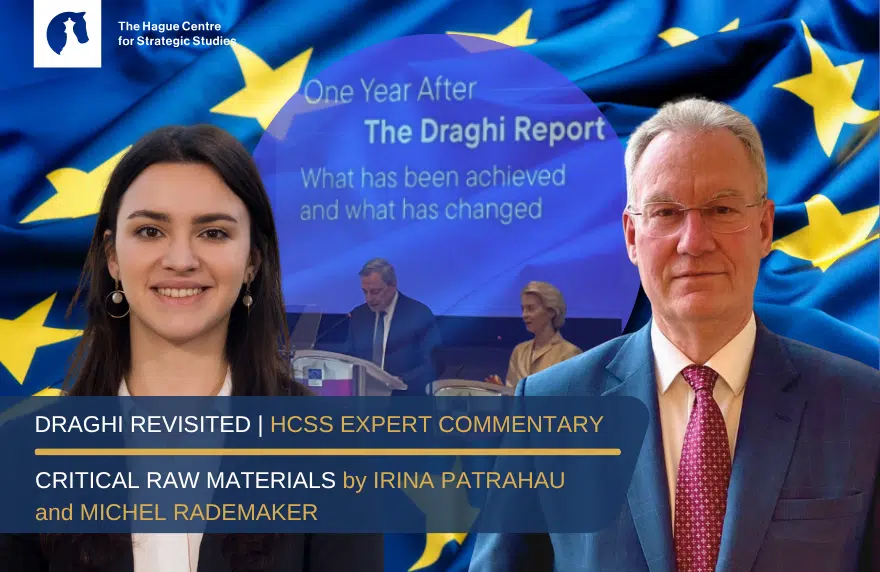Building resilience through voluntary mineral stockpiles: Supporting the clean tech sector through public-private collaboration
The Netherlands and Europe’s clean tech industries depend on a stable supply of critical raw materials (CRM) such as cobalt, nickel, lithium, and rare earth elements. These materials are increasingly exposed to geopolitical risks and market disruptions.
A new HCSS report by Irina Patrahau and Ron Stoop, commissioned by Invest-NL, explores how voluntary, public-private stockpiles could enhance business continuity, sustainability, and strategic autonomy in this vital sector.
Stockpiling — traditionally seen as a national security tool — can also serve economic resilience and sustainable sourcing. The report analyses how public instruments can support private actors in building CRM stockpiles, particularly in the clean tech sector, where companies face rising costs and supply uncertainty. Drawing on data from thirteen Dutch clean-tech companies and seven logistics and recycling stakeholders, it offers a practical framework for establishing voluntary stockpiles in four steps: planning, purchasing, managing, and deploying.
The findings show that while most Dutch clean tech companies currently lack CRM inventories, many see the strategic value of coordinated stockpiling to improve price stability and supply security. Small and medium-sized enterprises (SMEs) are especially vulnerable to disruptions yet too small to establish individual reserves — making them ideal beneficiaries of co-financed public-private stockpiles.
The Netherlands, with its world-class logistics infrastructure and access to European markets, could serve as a key hub for a Northwestern European or EU-wide CRM stockpile. This would align with EU initiatives like the Preparedness Union Strategy and the Critical Raw Materials Act (CRMA), as well as national ambitions to strengthen clean tech manufacturing under the Dutch National Technology Strategy.
The report presents five recommendations for Invest-NL:
- Support SME scale-up through co-financed voluntary stockpiles.
- Link stockpiling support to ESG and sustainable sourcing goals.
- Complement, not duplicate, national security stockpiling programs.
- Explore regional cooperation with partners such as Germany, Belgium, and France.
- Expand the approach beyond clean tech to other strategic sectors.
By combining public funding and private flexibility, voluntary stockpiles can strengthen Europe’s industrial resilience, enable sustainable growth, and reduce dependency on volatile global supply chains.
Authors: Irina Patrahau and Ron Stoop
Contributors: Michel Rademaker, Lucia van Geuns, Ciaran Cassidy
Review by: Peter Handley
The research was made possible through a grant from Invest-NL to The Hague Centre for Strategic Studies (HCSS).
Invest-NL is the National Promotional Institution of the Netherlands, committed to driving a sustainable and innovative future. We accelerate and finance major societal transitions in the fields of Agrifood, Biobased & Circular Economy, Deep Tech, Energy, and Life Sciences & Health. As a system player, we connect innovative entrepreneurs, financiers, knowledge institutions, and governments—both in the Netherlands and abroad. We remove barriers, mobilise capital, and help develop emerging sectors. Through capital, expertise, and new financial instruments, we invest in tomorrow’s solutions. Where the market hesitates, we take the first step. That is how we create impact.
The authors of the report want to extend their gratitude to Invest-NL team members Xandra Weinbeck and Eva Käller for their feedback.











